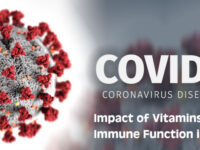1. Master Your Digestion Treatment Plan
Your doctor will determine the reasons for your digestive problems and will prescribe a treatment plan. This may involve taking medication, avoiding certain foods, and adopting some new habits. It may take a while for you to absorb all of this information. Try organizing your notes in a file folder or notebook, along with any instructions and resource materials from your doctor. Review the information regularly and jot down questions you want to ask your doctor.
2. Eat on schedule
Adams says that consuming your meals and snacks on a regular schedule can help keep your digestive system in top shape. Aim to sit down for breakfast, lunch, dinner, and snacks around the same time each day.
3. Stay hydrated
Drinking plenty of water is good for your digestive health, according to Adams. Water in your digestive system helps dissolve fats and soluble fiber, allowing these substances to pass through more easily.
4. Prepare for Digestive Emergencies
No matter how well you plan, accidents may happen. Be prepared by keeping emergency supplies on hand at home, work or school, and on the road. Discrete, portable packaging is available for many products.
5. Exercise regularly
“Regular exercise helps keep foods moving through your digestive system, reducing constipation,” says Adams. And exercise can help you maintain a healthy weight, which is good for your digestive health. Make it a point to work regular exercise into your weekly schedule.
6. Manage stress
Too much stress or anxiety can cause your digestive system to go into overdrive, according to Adams. Find stress-reducing activities that you enjoy and practice them on a regular basis.
7. Seek Support for Digestive Problems
Don’t try to hide your digestive problems from family, friends, and caregivers. Help them understand how, when, and why digestive problems affect you. Explain what they can do to support you emotionally and practically. Let them know what your self-care plan is. Inform them that problems such as diarrhea or gas pains may strike unexpectedly when you’re with them.
8. Take Charge of Your Digestive Problems
Partner with your doctor by providing detailed feedback and asking questions about your condition and treatment program. If the medication your doctor prescribed isn’t effective or has unacceptable side effects, speak up. There may be other medications you can try. Before trying over-the-counter remedies or supplements, check with your doctor or pharmacist about possible side effects and drug interactions. Keep track of your experiences and questions so you can discuss them with your doctor.
9. Beware of Miracle Cures for Digestive Problems
Alternative digestive treatments such as colon cleansing and fasting are widely touted in some articles and advertising. Although some alternative treatments show promise, many are expensive, ineffective, or downright dangerous. Always consult your doctor before trying any alternative therapy or supplement.
10. Get insoluble and soluble fiber
It is important to consume both types of fiber, which each help your digestive system in different ways. “Insoluble fiber, also known as roughage, can’t be digested by the body and therefore helps add bulk to the stools,” says Adams. “Soluble fiber draws in water and can help prevent stools that are too watery.” Good sources of insoluble fiber include wheat bran, vegetables, and whole grains; get soluble fiber from oat bran, nuts, seeds, and legumes.
11. Limit foods that are high in fat
“In general, fatty foods tend to slow down the digestive process, making you more prone to constipation,” says Adams. But since it is important to get some fat in your diet, Adams says that pairing fatty foods with high-fiber foods can make them easier on your digestive system.
12. Choose lean meats
Protein is an essential part of a healthful diet, but fatty cuts of meat can lead to uncomfortable digestion. When you eat meat, select lean cuts, such as pork loin and skinless poultry.
13. Skip the bad habits
Smoking and avoid excessive caffeine and alcohol. Liquor, coffee, and cigarettes can interfere with the functioning of your digestive system, and lead to problems like stomach ulcers and heartburn.
Sources:
http://www.webmd.com/digestive-disorders/diarrhea-10/daily-tips?page=4
http://www.everydayhealth.com/hs/healthy-eating/tips-for-better-digestive-health/
http://www.huffingtonpost.com














